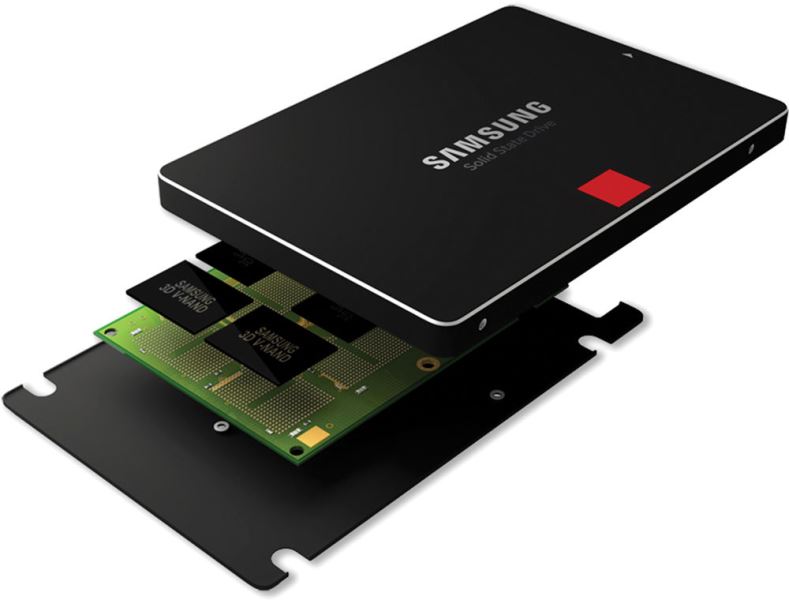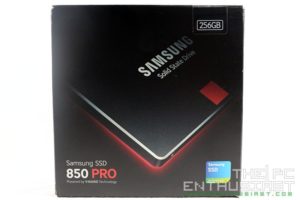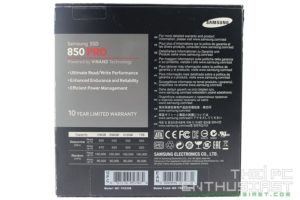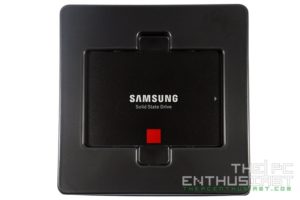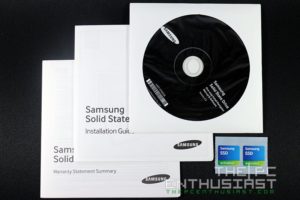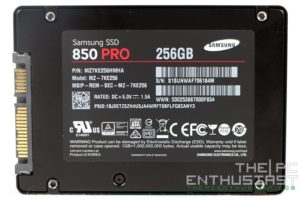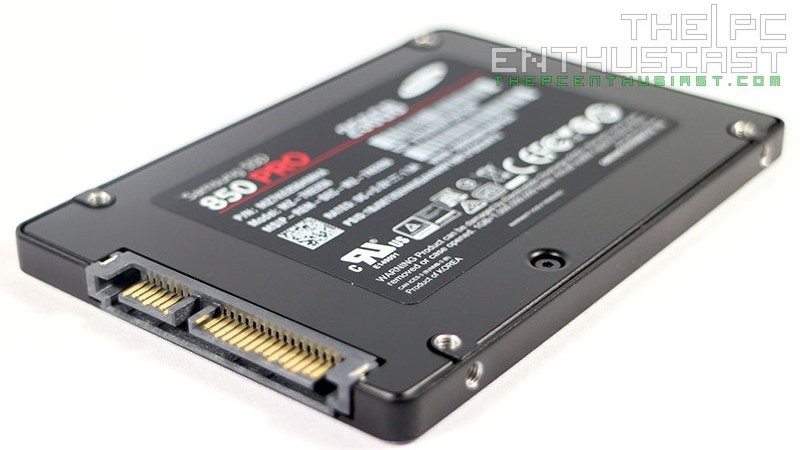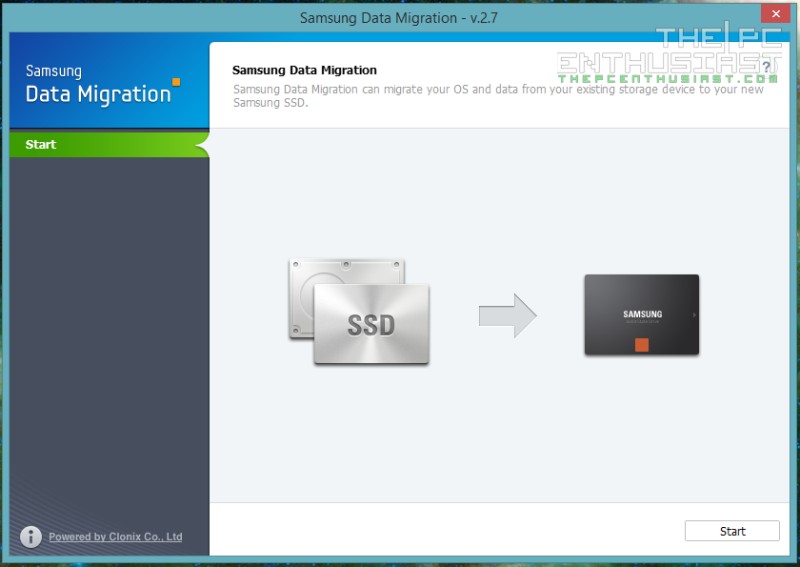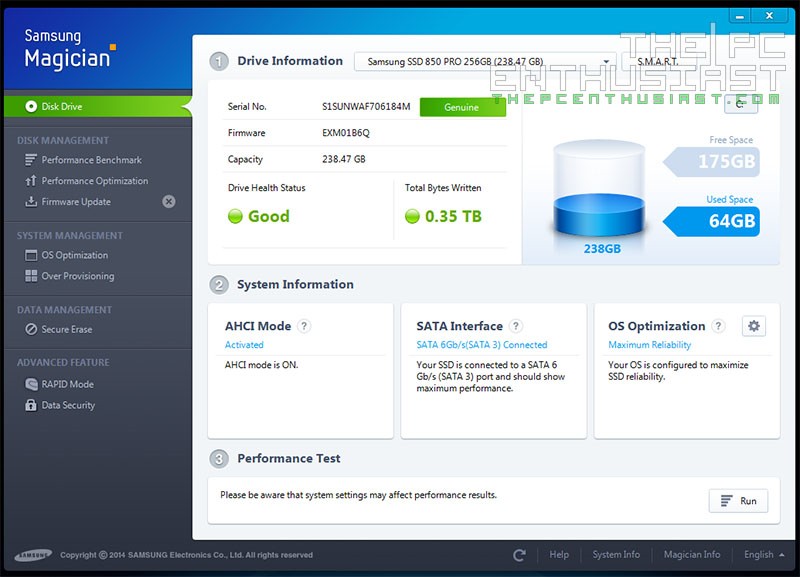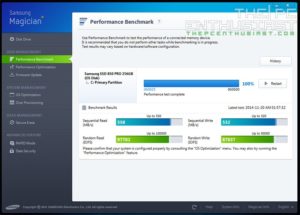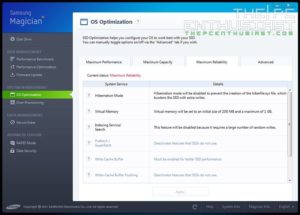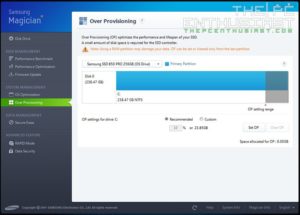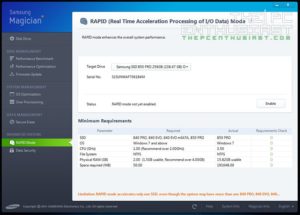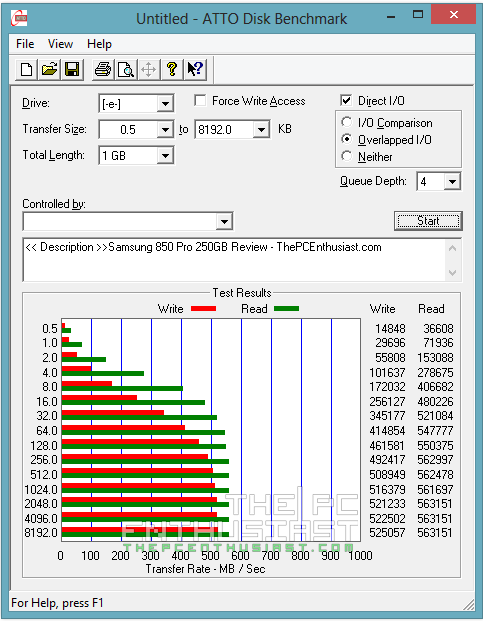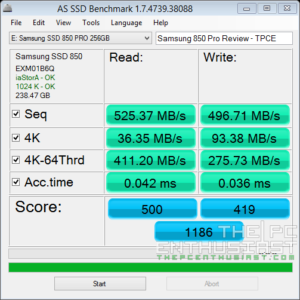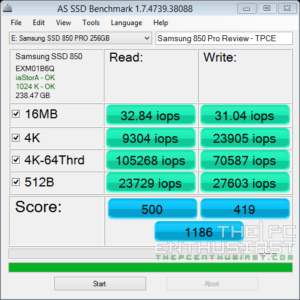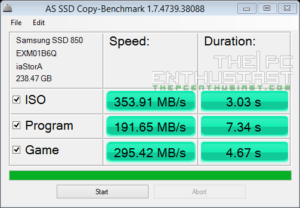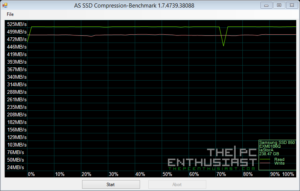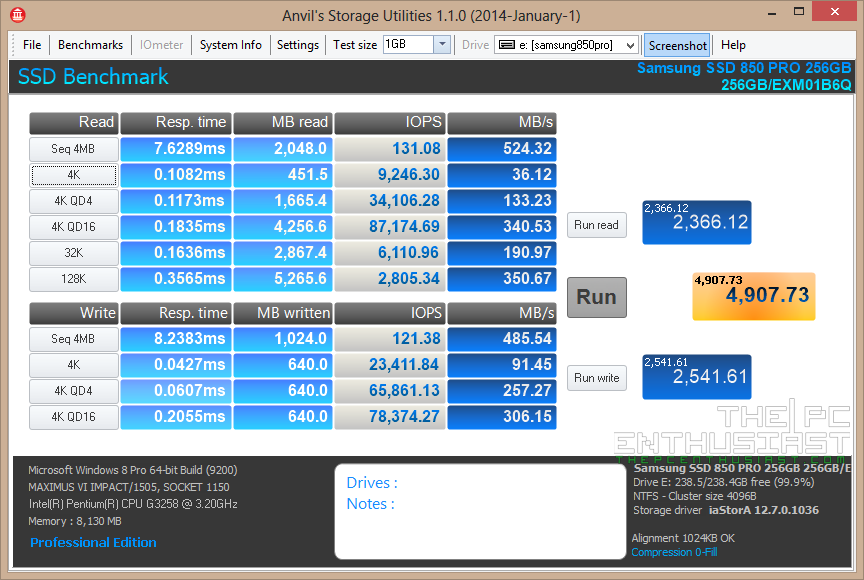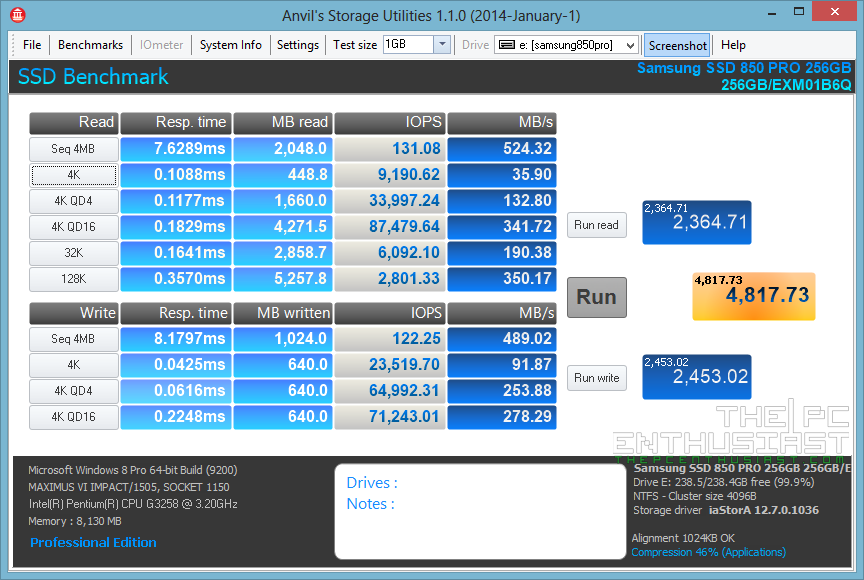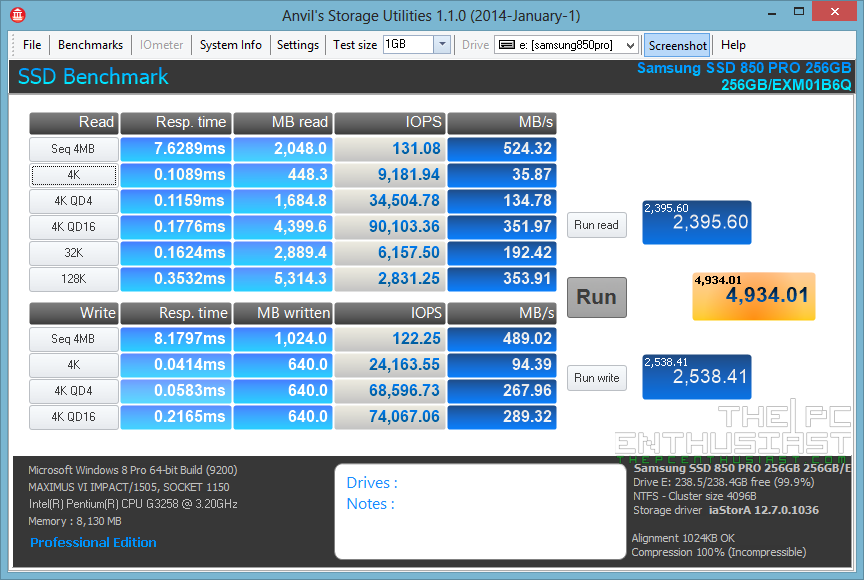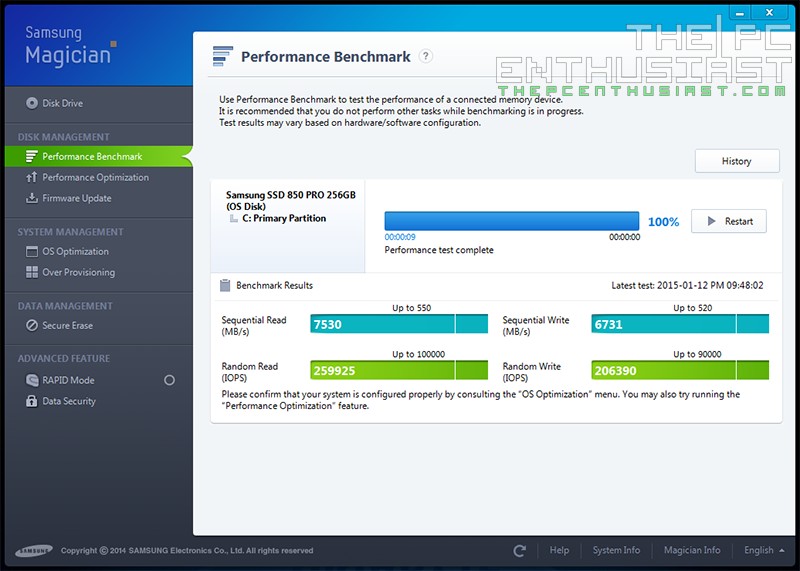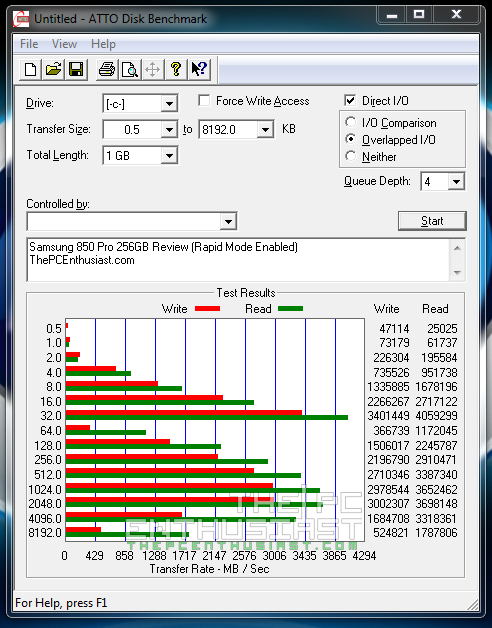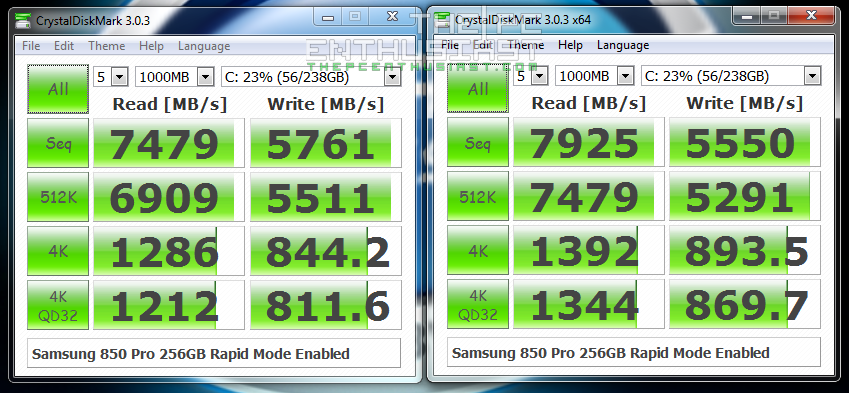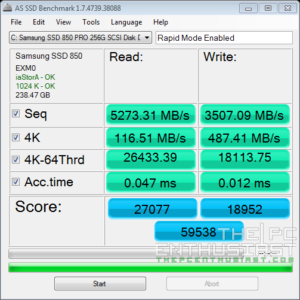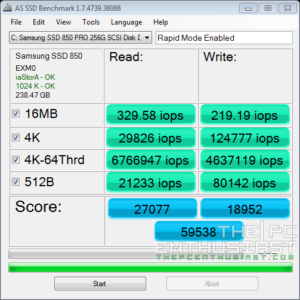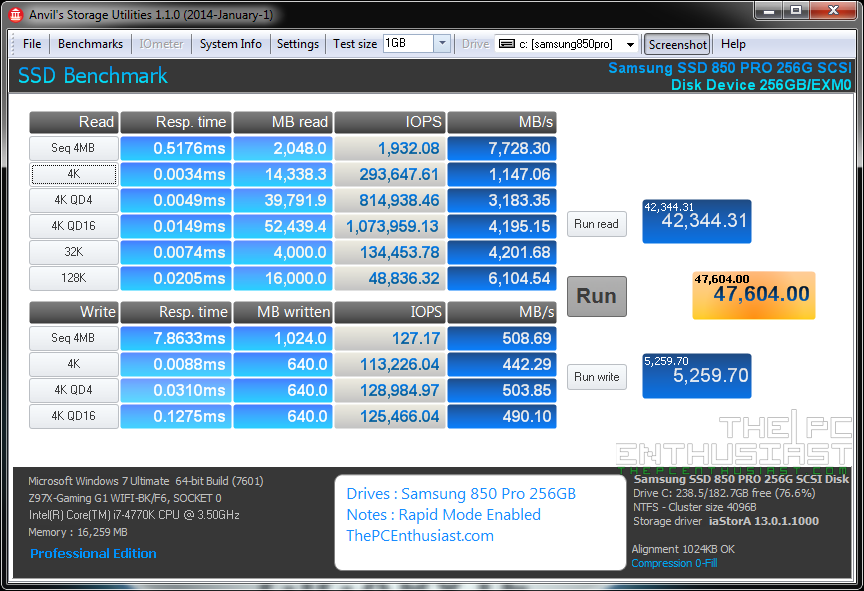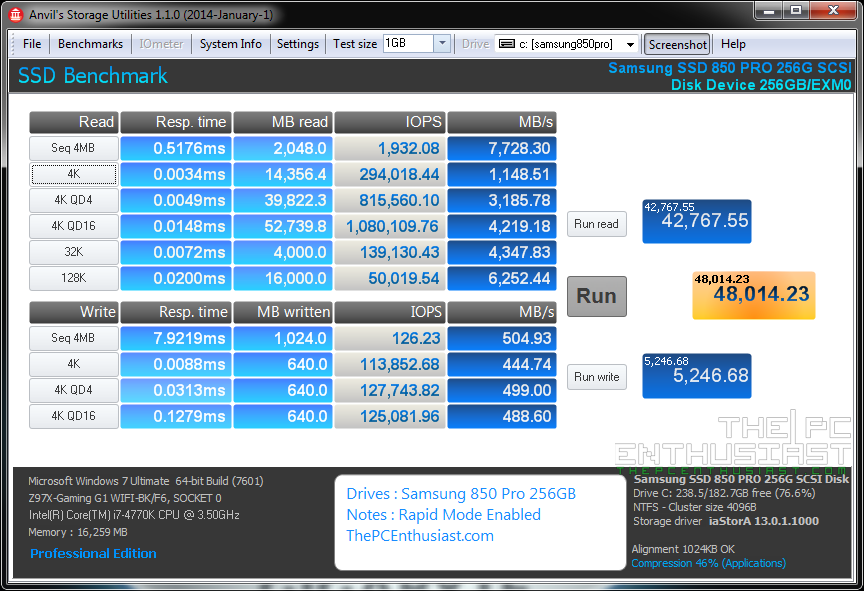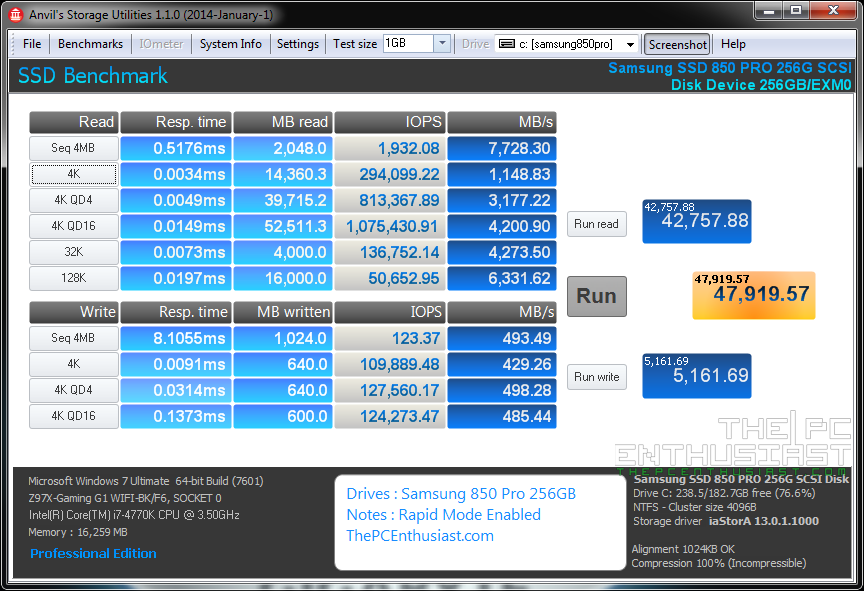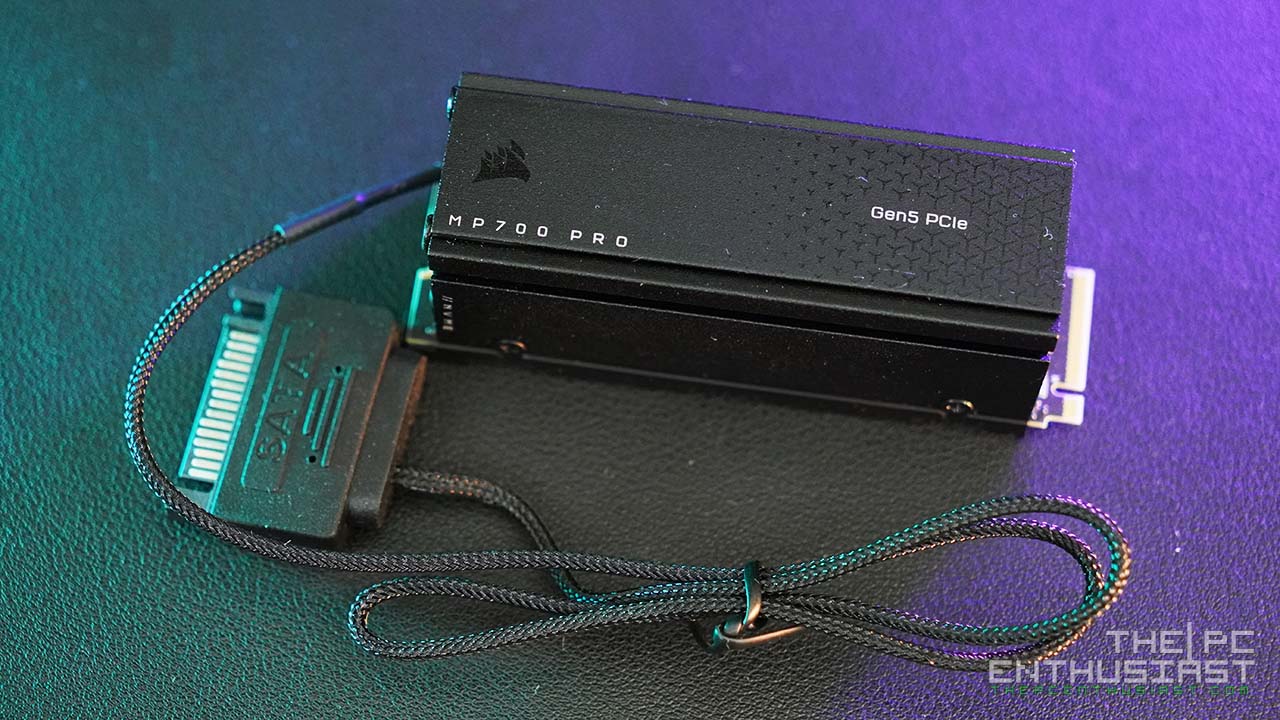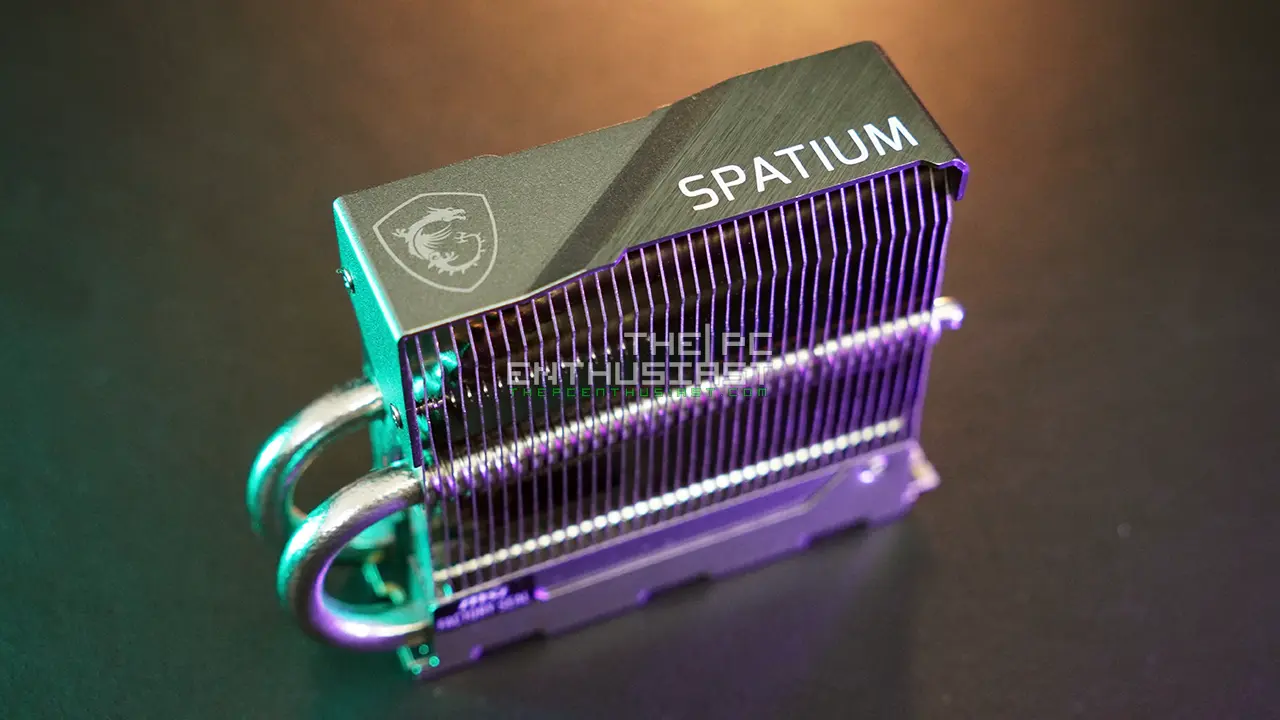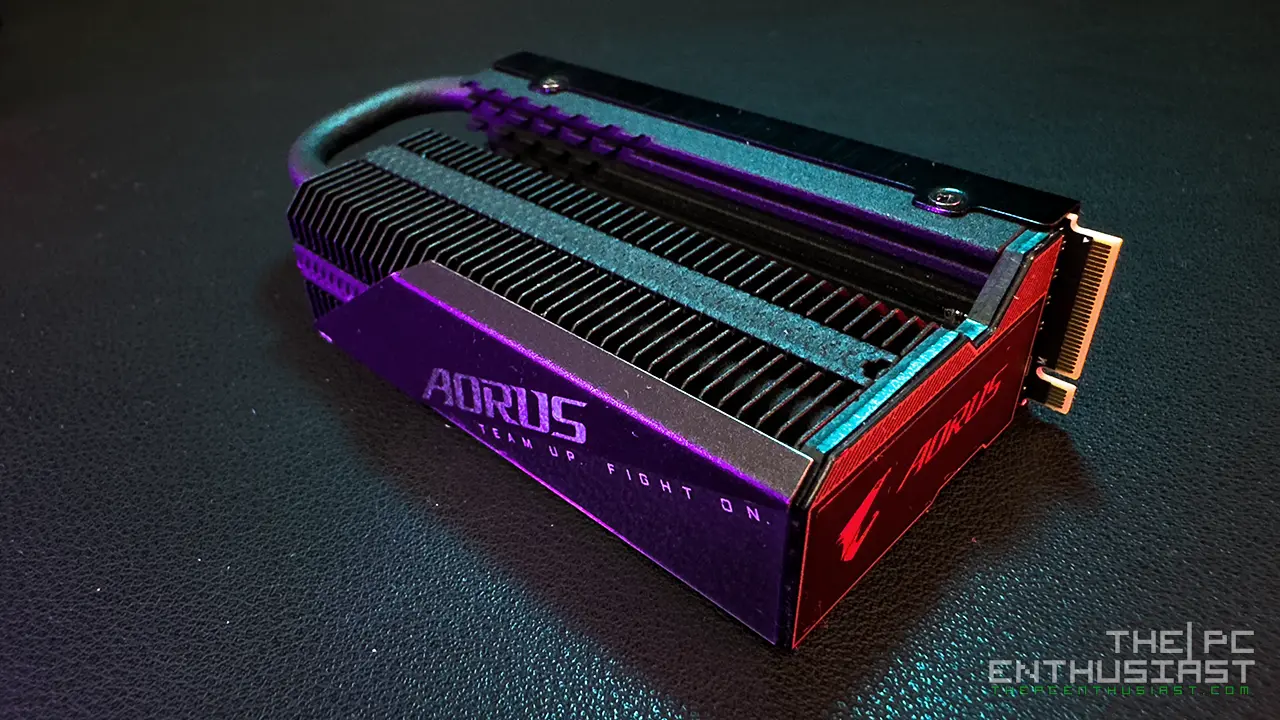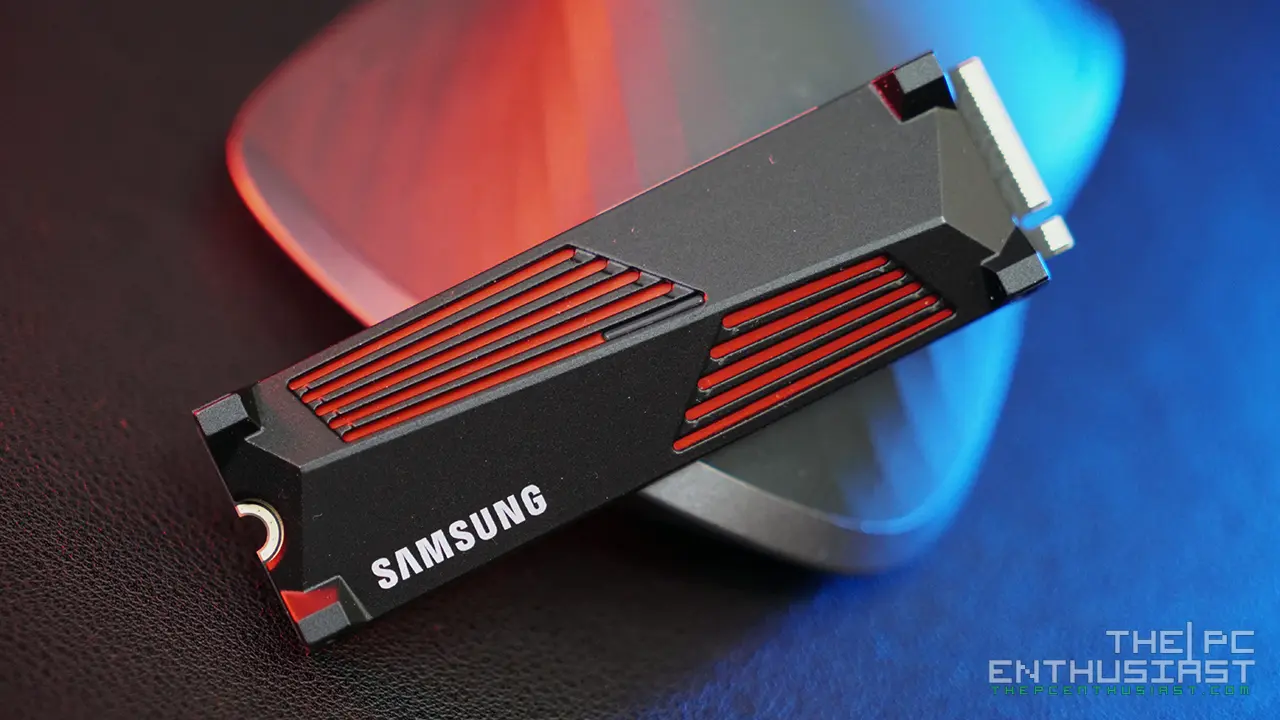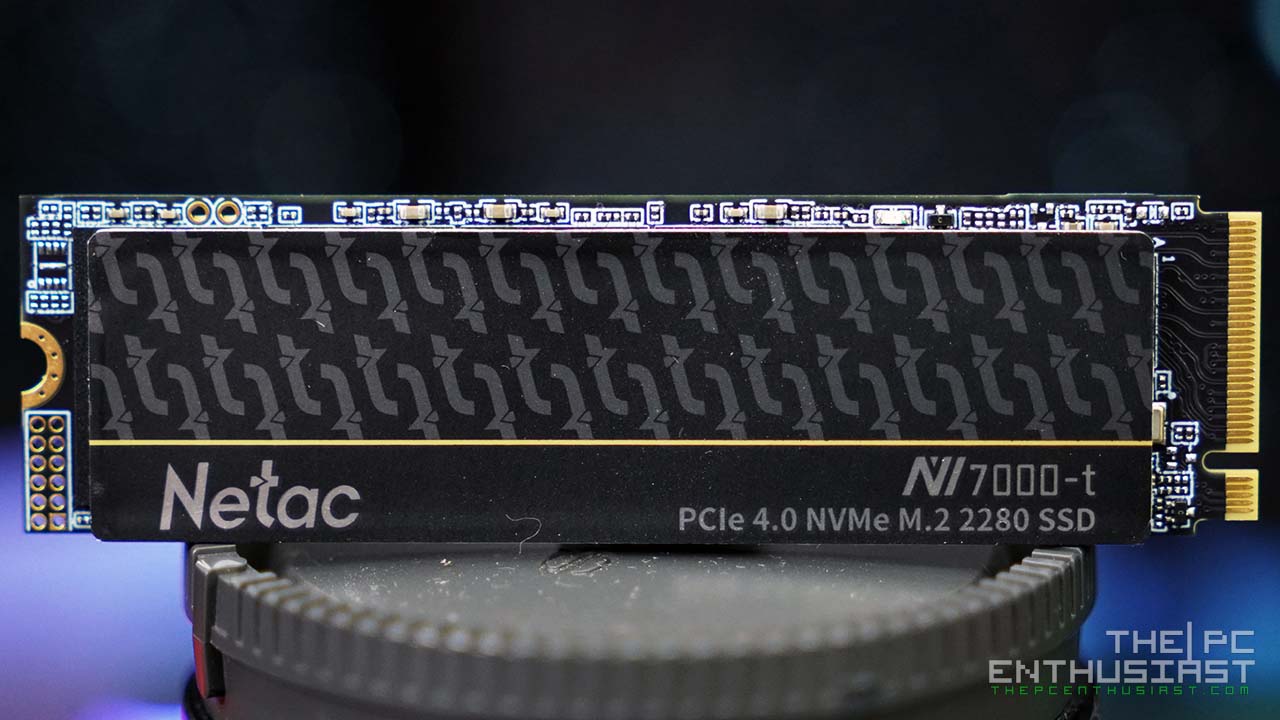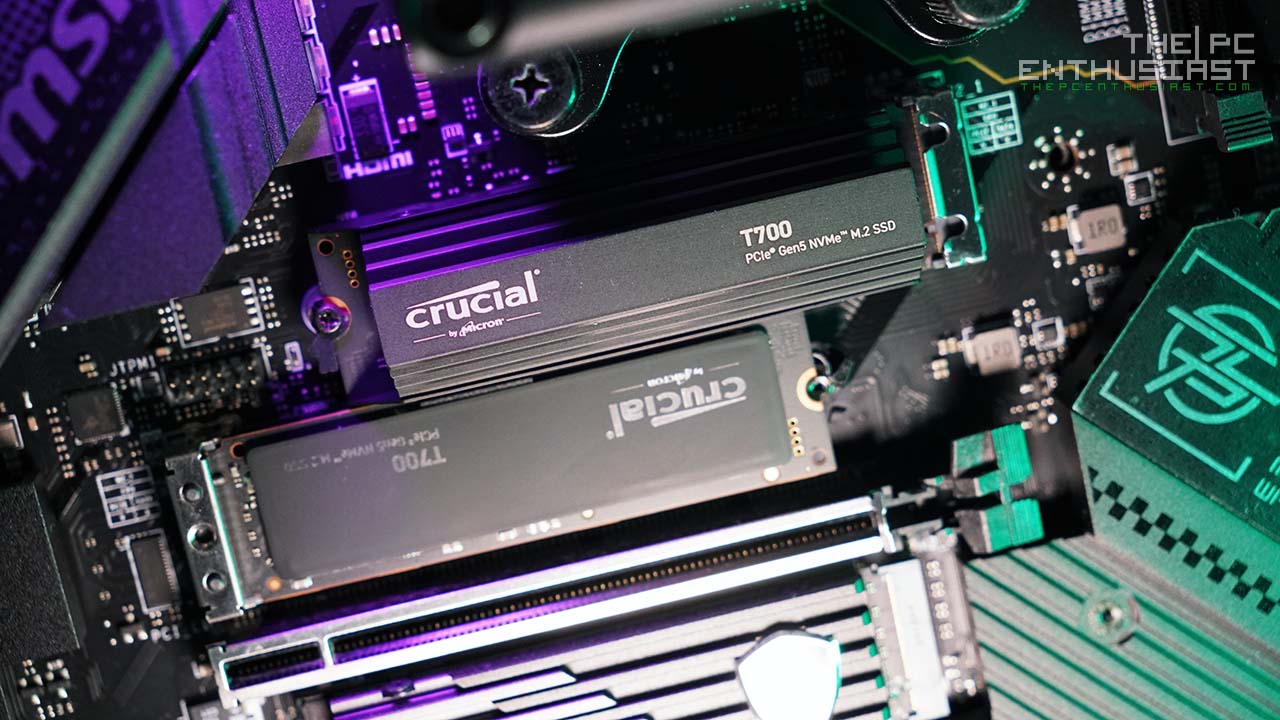As technology moves forward, SSDs nowadays becomes faster, more affordable and comes with larger capacities. Today let’s take a look at Samsung’s first SSD featuring 3D V-NAND Technology and it’s also the first SSD in the market to have such kind of technology – the Samsung 850 Pro. With the new technology, the 850 Pro is able to reach speeds of up to 550MB/s read and 520MB/s write, and up to 100,000 IOPS and 90,000 IOPS respectively. It’s using a 5th generation 3-core MEX controller which the company used in their 840 EVO SSDs. Compared to all the SSDs I have tried, the 850 Pro is so far the fastest SSD I have used, and most probably the fastest and best SSD as of today. The specific model and capacity I have with me is the Samsung 850 Pro 256GB (MZ-7KE256BW). Are you in the market looking for the best and fastest SSD available? Please continue reading my Samsung 850 Pro SSD review below.
Samsung 850 Pro 256GB SSD Review
The Samsung 820 Pro SSD series is the first SSD to make use of the 3D V-NAND or Vertical NAND technology, where 32 layers of cells are stack on top of one another, vertically rather than horizontally. The result is higher density and higher performance using a smaller footprint and a breakthrough in overcoming the density limits of conventional planar NAND architecture. The video below will show you a visual presentation of this technology.
Aside from having built with the latest technology, the Samsung 850 Pro SSD features 5th-generation 3-Core Samsung MEX Controller that ensures sustained performance under the most punishing conditions. It is capable of sequential read and write speed of up to 550MB/s and 520MB/s respectively, and random read and write input/output operations-per-second of up to 100,000 IOPS and 90,000 IOPS respectively.
Just like its predecessor, it features AES 256-bit encryption to keep files stored inside safe and secure, Microsoft Bitlocker and also supports TCG / Opal 2.0. Now this is something new for a consumer SSD, the company is so confident that their new 850 Pro is reliable and built to endure, Samsung is backing it up with a 10 year limited warranty. 10 years is a very long time already, and this is so far the first and longest for a consumer SSD on the market.
Aside from the 10-year warranty, Samsung also guarantees that their 850 Pro will last up to 150TBW (Terabytes written). As of to date, this is by far the largest guaranteed written data. Some SSDs are fast, performs above average or somewhat nearing the 850 Pro’s performance. But they might not last that long compared to the 850 Pro. Probably the second is from Intel with their SSD 730 480GB capacity, offering up to 128TBW endurance rating.
Just like its PRO predecessors, the new Samsung 850 Pro is geared towards professionals who need a fast storage for video editing, rendering 3D objects and animation, for game developers and even for hardcore gamers or pro consumers who wants the best and fastest SSD that the present technology has to offer.
Samsung 850 Pro SSD Specifications
| Usage applications | Client PCs |
| Capacity | 128GB, 256GB, 512GB, 1TB (1,024GB) |
| Dimensions (L x W x H) | 100 x 69.85 x 6.8 (mm) |
| Interface | SATA 6Gb/s (compatible with SATA 3Gb/s and SATA 1.5Gb/s) |
| Form factor | 2.5 inch |
| NAND flash memory | Samsung 3-core MEX controller |
| DRAM cache memory | 256MB (128GB) or 512MB (256GB&512GB) or 1GB (1TB) LPDDR2 |
| Sequential Read | Max. 550MB/s |
| Sequential Write* | Max. 520MB/s (256GB/512GB/1TB) Max. 470MB/s (128GB) |
| 4KB Random Read (QD1) | Max. 10,000 IOPS |
| 4KB Random Write (QD1) | Max. 36,000 IOPS |
| 4KB Random Read (QD32) | Max. 100,000 IOPS |
| 4KB Random Write (QD32) | Max. 90,000 IOPS |
| TRIM support | Yes (Requires OS support) |
| Garbage collection | Yes |
| S.M.A.R.T. | Yes |
| Security | AES 256-bit Full Disk Encryption (FDE) TCG/Opal v2.0, Encrypted Drive (IEEE1667) |
| Weight | Max. 66g (1TB) |
| Reliability | MTBF : 2 million hours |
| TBW | 150 TBW (Terabytes Written) |
| Power consumption** | Active Read (Average) : Max. 3.3W (1TB) Active Write (Average) : Max. 3.0W (1TB) Idle : Max. 0.4W Device Sleep : 2mW |
| Temperature | Operating : 0℃ to 70℃ Non-Operating : -40℃ to 84℃ |
| Humidity | 5% to 95%, non-condensing |
| Vibration | Non-operating : 20~2,000Hz, 20G |
| Shock | Non-operating : 1500G , duration 0.5msec, 3axis |
| Warranty | 10 years limited |
* Sequential performance measurements based on CrystalDiskMark v.3.0.1.Random performance measurements based on Iometer 2010.
Performance may vary based on SSD’s firmware version, system hardware and configuration. Test system configuration: Intel Core® i5-2500K @ 3.3 GHz, DDR3 1600 MHz 4 GB, OS – Windows® 7 Ultimate x64 SP1 IRST 11.5.4.1001, MS performance guide pre-condition Intel® Z68
** Power consumption measured with IOmeter 1.1.0 version with Intel i7-4770K, Samsung DDR3 8GB, Intel DH87RL OS- Windows® 7 Ultimate x64 SP1
Packaging and Closer Look
The Samsung 850 Pro comes in a familiar packaging. If you have the 840 Pro or Evo, you know what I mean. Some of the drive’s features and specifications are printed on the back of the box.
Aside from the 850 Pro itself, the package includes a driver and software CD, installation guide, warranty statement summary and a couple of stickers. Too bad they didn’t include a 2.5-inch to 3.5-inch mounting bracket. It’s really useful specially when your chassis doesn’t support 2.5-inch drives.
The Samsung 850 Pro looks very much similar with the 840 Pro. There are no major changes on its casing, except now that Samsung is using a more aggressive color, Red.
I don’t have photos of what’s inside because Samsung is using a different type of screw, but the 256GB capacity is only using a half-sized PCB. Usually SSDs with capacities 256GB and above are using a full sized PCB. Inside, expect to see Samsung’s MEX S4LN045X01-8030 controller, a 512MB LPDDR2 memory and 4x 32-layer 3D NAND chips.
Samsung SSD Software
Samsung also included two really useful software with the 850 Pro. These software are the Samsung Data Migration and the Samsung Magician Software. The Data Migration is a simple software with only one function, to migrate data from your old drive to your new 850 Pro SSD.
The Samsung Magician Software, on the other hand, has more functions and is primarily divided into 5 main menus: Drive Information, Disk Management, System Management, Data Management and Advanced Feature.
In the Drive Information, it gives you the basic information about the status of the Samsung 850 Pro SSD (and other compatible series). You will see information about the drive, how many bytes was written already, it’s current mode and you can also do a performance test.
In the Disk Management, you can benchmark your SSD, perform an optimization and update your drive’s firmware. In the System Management you can configure how do you want the SSD to behave with your current operation system. Of course you can do this manually, but this is the easiest way to do it, specially if you are not familiar with tinkering your OS. You can also set and change the amount or percentage of the drive’s Over Provisioning. This feature is not common in most SSDs, since over provisioning is usually set by the manufacturer.
The Magician Software also provides a secure way of erasing your drive and restoring everything back to its default. From the Advanced Feature, you can set the level of Data Security you want to implement, whether Class 0, TCG Opal or encrypt the whole drive. This is very useful specially if your store (very) sensitive information in the drive.
In the Advanced Feature, there is also an option called Rapid Mode. With Rapid Mode enabled, the performance of the SSD rapidly increases specially the read performance. This enhances performance by processing data on a system level using free PC memory (DRAM) as a cache. This is dependent on how fast or huge is the installed system DDR memory. I’ll show you some benchmarks below. This is not the only SSD to have this kind of feature. Plextor’s high performance SSDs also have this kind of feature, they call it PlexTurbo.
Test Setup
In testing the Samsung 850 Pro 256GB SSD, I was supposed to use 1 system only, but ended up using two different systems. For the main benchmark, I used my Asus Maximus VI Impact with an Intel Pentium G3258 Anniversary Edition CPU. While for the Rapid Mode, I used the Gigabyte Z97x Gaming G1 WiFi BK with Intel Core i7-4770K CPU and Kingston HyperX Savage DDR3 memory. There’s no special reason why I did this actually. But I just want to show you that even if your PC is not powered by a quad core processor, you can still benefit from the speed that the Samsung 850 Pro has to offer.
Operating System: Windows 8.1 Pro 64bit
Motherboard: Asus Maximus VI Impact
Processor: Intel Pentium G3258 AE
CPU Cooler: Enermax LiqTech 240
Memory: ADATA XPG V2 8GB DDR3 2400MHz
Graphics card: Gigabyte GeForce GTX 750 Ti OC
Hard Drive: Silicon Power S60 for the OS
Power Supply: Seasonic X750 Gold Series v3
For the RAPID MODE Benchmarks:
Operating System: Windows 7 Ultimate 64bit
Motherboard: Gigabyte Z97X Gaming G1 WiFi BK
Processor: Intel Core i7-4770K @ 3.9GHz – 4.4GHz
CPU Cooler: Thermalright Archon IB-E X2
Memory: Kingston HyperX Savage DDR3 2400MHz 16GB
Graphics card: Club 3D Radeon R9 285 royalQueen
Hard Drive: Samsung 850 Pro 256GB
Power Supply: Seasonic 1050W Platinum
Samsung 850 Pro 256GB SSD Benchmarks
ATTO Disk Benchmark
ATTO Disk Benchmark usually reports the highest read/write speed. The highest read speed I got is around 563MB/s and write speed is around 525MB/s. These results are a tad higher than the drive’s rated speed.
CrytalDiskMark Benchmark
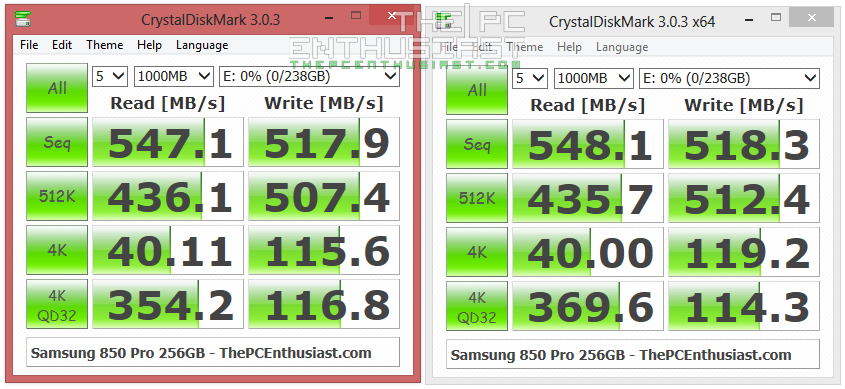
The Samsung 850 Pro 256GB’s read/write speed drop a little bit by around 25MB/s in the AS SSD benchmark, but still that’s an acceptable result. Most SSDs on the market don’t even come close with their advertised sequential read/write speeds.
Anvil’s Storage Utilities Benchmark
For the Anvil’s Storage Utilities benchmark, I did a compressible test, a mix (46%) compression test and a 100% incompressible test. All three tests returned a very similar result. This means that its read/write speed will mostly remain the same regardless if the file is compressible or not. Some or many SSDs on the market don’t perform well with incompressible files, but they do well with compressible files. Usually it’s the write speed that is affected by this. And from the results above, it clearly shows that the Samsung 850 Pro does well on both types of files, whether compressible or incompressible data or files.
Now let’s activate or enable the Rapid Mode from the Samsung Magician software and see how big the improvements are.
Rapid Mode Enabled
Remember, in Rapid Mode, it greatly depends on what type of memory (its speed and capacity) you are using. The result also varies depending on the workload of your system. I noticed that read/write speeds are not consistent and they tend to change, sometimes performance varies significantly. You may not get the same result with my tests.
In Samsung Magician software, a significant boost in the read/write speed is observed. However, things are not the same with ATTO Disk Benchmark. Read speed resulted in 1,788 MB/s, while the write speed is only 525MB/s which is near the drive’s rated write speed.
Both the CrystalDiskMark and AS SSD Benchmark also returned a very high read/write speed. But the values they returned are significantly not the same.
In all my tests for the Samsung 850 Pro 256GB in Rapid mode, only the read speed of around 7,500MB/s remained somewhat consistent. The write speed still varies since technically it can’t write beyond 6Gbps on the SSD itself. So the 5,000MB/s or 6,000MB/s write speed you see above are not the actual write speed of the 850 Pro, but it’s the write speed from my system’s memory.
Price and Availability
The Samsung 850 Pro SSD series is now widely available. At the time Samsung officially announced their new flagship SSD, the manufacturer’s suggested retail prices are as follows: $129.99 for the 128GB, $199.99 for the 256GB, $399.99 for the 512GB and $699.99 for the 1TB capacity. Samsung is also offering a 10 year limited warranty for all the capacities in the 850 Pro series.
At the time I published this review, B&H is selling the 850 Pro series below MSRP prices:
- 128GB (MZ-7KE128BW) – $114.89 only
- 256GB (MZ-7KE256BW) – $169.99 only after $20 instant savings
- 512GB (MZ-7KE512BW) – $359.00 only
- 1TB (MZ-7KE1T0BW) – $649.99 only after $50 instant savings
Samsung 850 Pro 256GB SSD Review: Conclusion
3D V-NAND Technology is just the beginning and has just opened new doors for the SSD industry. While PCIe based SSDs are slowly rising from the market, there is still very limited market due to its very high price, despite that it offers a much faster read/write speed. The 2.5-inch SATA SSD is still the popular choice in the market since it’s more affordable. I could still remember the time when a 32GB and 64GB SSD were very expensive, similar to a price of a 128GB or 256GB SSD today.
While, the Samsung 850 Pro is not a cheap SSD, in fact it’s an expensive SSD compared to its competitors. But it does offer a consistent read/write speed and performs better compared to the most SSDs on the market. Performance wise, it blew me away, and didn’t fail my expectations. It performed consistently well with both compressible and incompressible data. Meaning if you are editing videos, photos, audio files or just any sort of data, the 850 Pro can handle it very much, without a significant decrease in speed, specially write speed.
Although the RAPID Mode did give the 850 Pro a significant boost in performance, I wasn’t really excited about it. It’s not really a unique feature anymore. But what I really liked about the Samsung 850 Pro is its raw performance, plus the 10-year warranty and 150TBW guarantee. No other SSDs on the market, as of today, have this kind of warranty and guarantee. The other features like Magician Software, Migration Software, AES Encryption, Rapid Mode and etc were just a plus factor for me.
I got nothing else to say about Samsung’s flagship SSD. If you are looking for an SSD with raw performance and that really delivers, the Samsung 850 Pro may be the SSD you are looking for. But expect to pay a premium price. If you feel that it’s just too expensive for you, the also new Samsung 850 Evo is also a good option. It’s cheaper, features 3D V-NAND technology, but it may not be as fast as the 850 Pro. Nevertheless it’s still a good option. Finally, the Samsung 850 Pro 256GB SSD, not only deserves a highly recommended award, but also The PC Enthusiast’s Editor’s Choice award.

